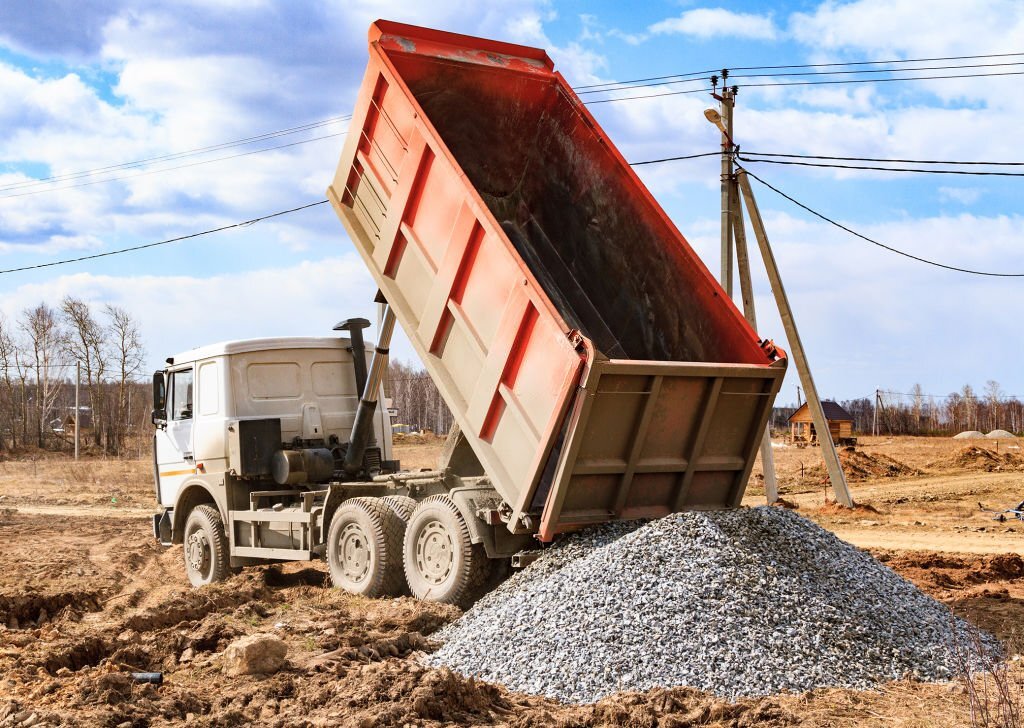
Efficient material transportation is a crucial aspect of road construction projects. The seamless flow of materials, such as aggregates, asphalt, and concrete, is vital for maintaining construction timelines and ensuring project success. Heavy equipment plays a pivotal role in this process, enabling the safe and efficient movement of materials on-site. In this article, we explore the key types of heavy equipment used for material transportation in road construction projects. From versatile dump trucks to specialized conveyor belts, we delve into their applications, benefits, and contributions to construction productivity.
I. Dump Trucks :
Dump trucks are synonymous with material transportation in road construction. These robust vehicles are specifically designed to haul and transport a wide range of construction materials efficiently. Key features and applications of dump trucks include:
- Capacity and Loading Mechanism: Dump trucks are available in various sizes and configurations, with capacities ranging from a few tons to over 100 tons. Their unique hydraulic dumping mechanism allows for quick and controlled unloading of materials at the construction site.
- Versatility: Dump trucks can transport different materials, including soil, gravel, asphalt, and concrete. Their versatility makes them indispensable for hauling bulk quantities of materials from the source to the construction site.
- Off-Road Capability: Equipped with rugged tires and robust suspension systems, dump trucks can navigate challenging terrains commonly encountered in road construction projects. They are designed to handle rough, uneven surfaces and steep inclines.
II. Conveyor Belts :
Conveyor belts are another essential heavy equipment type used for material transportation in road construction. These mechanical systems offer a reliable and efficient solution for moving bulk materials over long distances. Here’s a closer look at their applications and advantages:
- Material Handling Efficiency: Conveyor belts excel in transporting large volumes of materials over extended distances. They eliminate the need for manual labor and significantly reduce the time and effort required for material handling.
- Flexibility and Customization: Conveyor belts can be designed and configured to suit specific project requirements. They can be straight or curved, inclined or declined, and equipped with various belt types to accommodate different materials.
- Improved Safety: Conveyor belts enhance worker safety by minimizing the need for manual lifting and carrying of heavy materials. They help reduce the risk of strains, injuries, and accidents associated with manual material handling.
III. Haulers and Material Handlers :
Haulers and material handlers are specialized heavy equipment used in road construction for transporting and moving materials with precision and efficiency. They offer unique advantages in specific scenarios:
- Articulated Haulers: Articulated haulers are robust vehicles designed for off-road material transportation. They feature an articulated chassis, allowing for increased maneuverability on uneven terrain. These haulers are commonly used for transporting large quantities of materials over challenging construction sites.
- Material Handlers: Material handlers are versatile machines equipped with hydraulic arms and attachments, such as grabs or clamshell buckets. They excel in loading, unloading, and sorting various construction materials, enhancing material handling efficiency and productivity.
- Off-Road Trucks: Off-road trucks are heavy-duty vehicles designed to transport materials over rugged terrains encountered in road construction projects. These trucks have enhanced suspension systems, durable tires, and powerful engines, ensuring smooth and efficient transportation even in demanding conditions.
Conclusion :
The successful execution of road construction projects heavily relies on the efficient transportation of materials. Through the utilization of various heavy equipment types, such as dump trucks, conveyor belts, haulers, and material handlers, construction professionals can ensure seamless logistics and increased productivity. Dump trucks provide versatility and robustness for hauling bulk materials, while conveyor belts offer efficient and automated material handling over extended distances. Specialized equipment like haulers and material handlers excel in off-road transportation and precise material handling tasks. By leveraging the capabilities of these heavy equipment types, road construction projects can maintain their timelines, streamline material logistics, and ultimately achieve successful outcomes.

